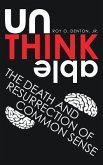There is an important theological position in Christianity that was adopted very early in the church and is still accepted today. This position says that upon entering heaven at the end of days, agents will have endured some form of moral transformation. What this moral transformation entails, however, is a bit vague. One historically popular view of this transformation says that heavenly agents have transitioned in the process from imperfect earthly agents to morally perfect heavenly agents. The vagueness is the term 'morally perfect.' There are many (obvious) reasons why an agent qualifies as imperfect but specifying the reasons that show that an agent is perfect seems to be more difficult. The primary purpose of this thesis is to defend the view that moral perfection is possible. In addition to this goal, I also intend to clarify the relevant conditions related to the issue of how human agents transition from imperfect to perfect. Finally, in the context of this transitioning or transforming into perfection, I hope to show the significance of the agent's moral development, both prior to perfection and after it. All my coverage of moral perfection is in the framework of the Christian doctrine of heaven, and the moral status of agents there.







